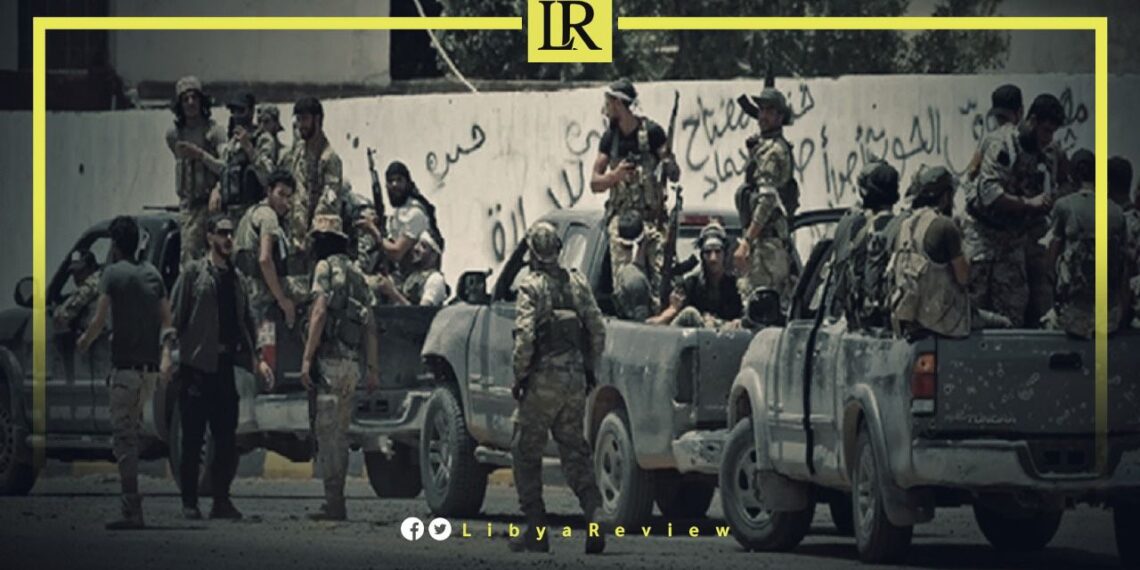The Interior Ministry of the Tripoli-based Government of National Unity (GNU) announced yesterday plans to demilitarise Tripoli by relocating security checkpoints and transitioning the responsibilities of armed groups to official security directorates. This move raises questions about the compliance of all factions with the initiative.
Political analyst Nasser Abu Deeb describes this initiative as a long-overdue and crucial step that should have been implemented years ago, particularly since the onset of the February 17th revolution. He believes the current developments are positive and implementable, at least concerning security checkpoints and patrols, ensuring a specialised Ministry oversees these operations around the clock.
Abu Deeb pointed out that this plan primarily covers four municipalities within Tripoli—Hay Andalus, Abu Salim, Central Tripoli, and Ain Zara—excluding areas like Tajoura and Janzour. He expressed optimism about the armed groups’ compliance, albeit not in the exact manner of vacating their bases, given their extensive militarization and affiliation with either the Ministry of Defense or the General Staff. The challenge, he notes, lies in relocating these groups entirely out of the capital due to a lack of accommodating facilities.
Another political analyst, Abdullah Al-Dibani, views the presence of armed factions as a longstanding issue in Libya since the February revolution. Attempts to address this problem have often been superficial, focusing more on reducing their numbers through amalgamation rather than complete disbandment.
Al-Dibani compares the current Interior Minister’s statements to those of his predecessor, Fathi Bashagha, who initiated “Operation Snake Head” to diminish the number of unauthorized armed groups. However, these factions resurfaced with greater strength under the GNU’s Prime Minister Dbaiba government, splitting from other groups loyal to Dbaiba and following his directives.
Al-Dibani believes the Interior Minister’s goal isn’t to end the existence of armed groups in the capital but to reduce their dominance, differentiating between legitimate and illegitimate factions. He doubts that merely relocating these groups from Tripoli will remove them from the political and security scene.
He advocates for individually integrating members of these groups into official institutions like the Ministries of Interior and Defense, allowing them to transition to civilian state institutions if they choose to leave the armed service. This approach, he argues, would provide them with better opportunities based on their qualifications and civil service benefits, potentially diverting them from the frontline of any future conflicts.
Al-Dibani criticizes the GNU’s government’s reliance on temporary solutions, suggesting that some factions are being used for personal gains.
He doubts the effectiveness of the Interior Minister’s plan, seeing it as a mere statement rather than an actionable policy. He calls for a more comprehensive approach that includes individual integration and support for small-scale entrepreneurship among former militants.


